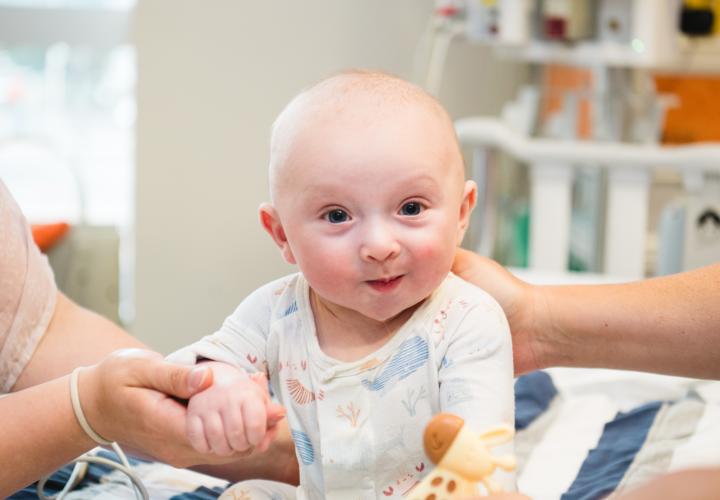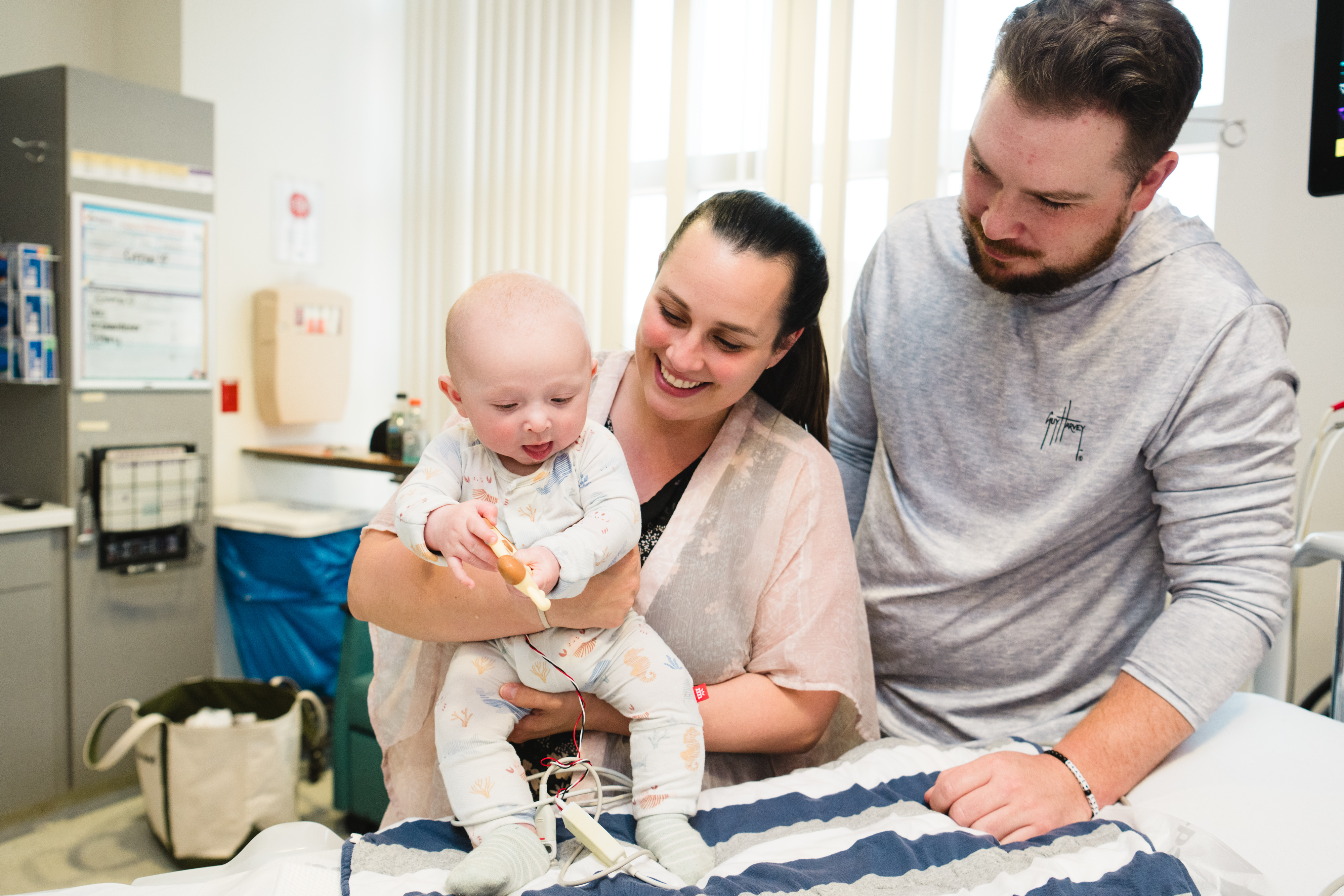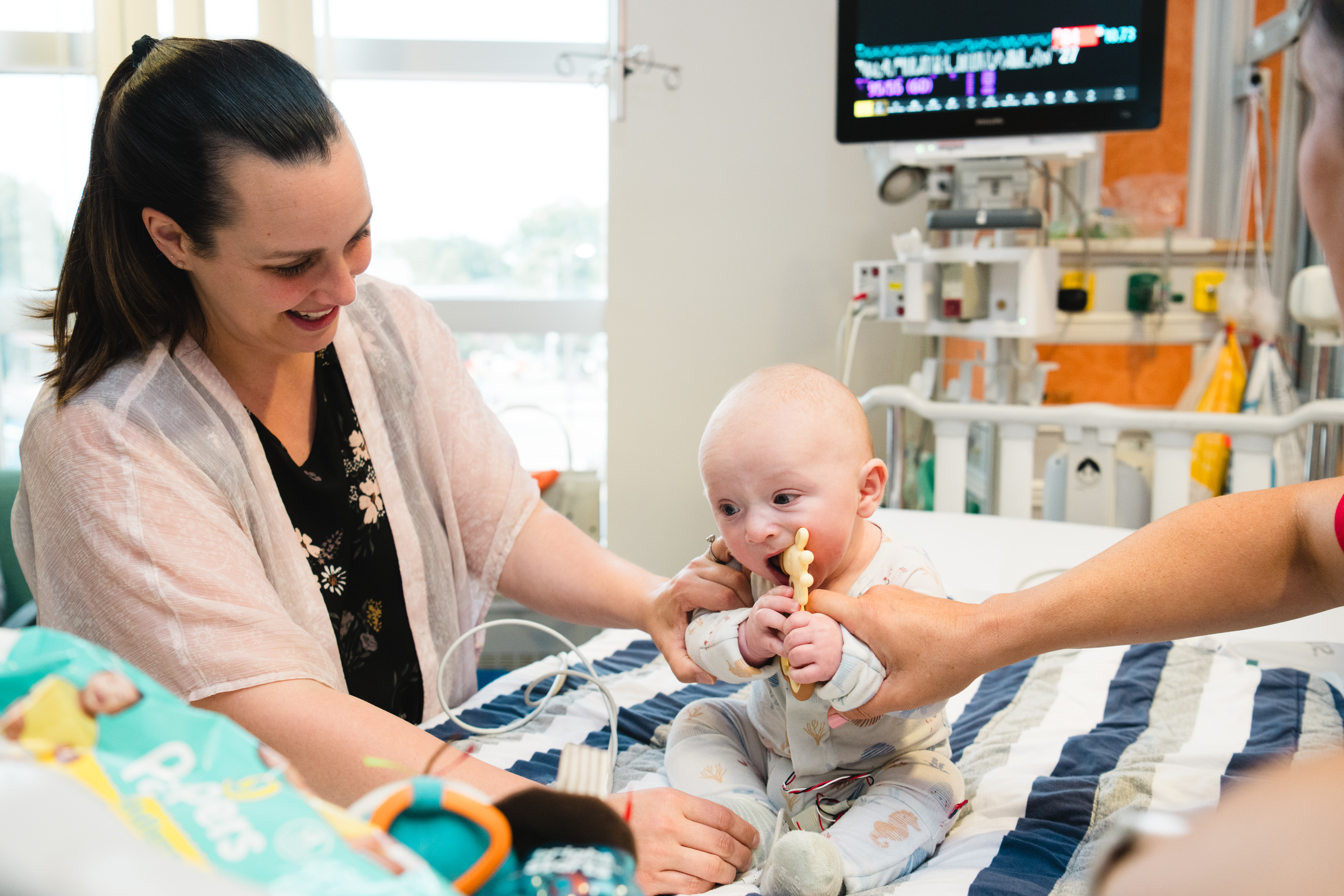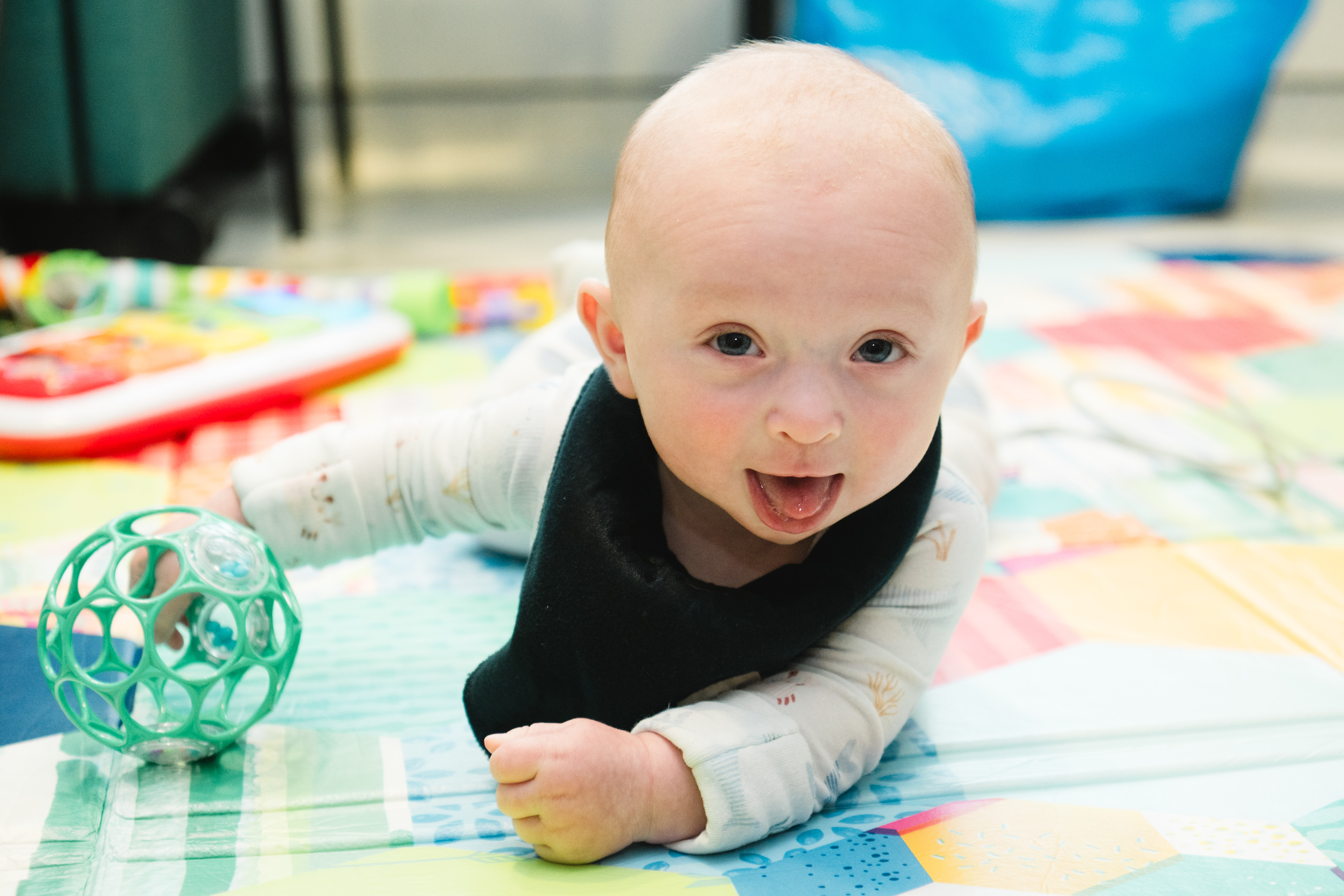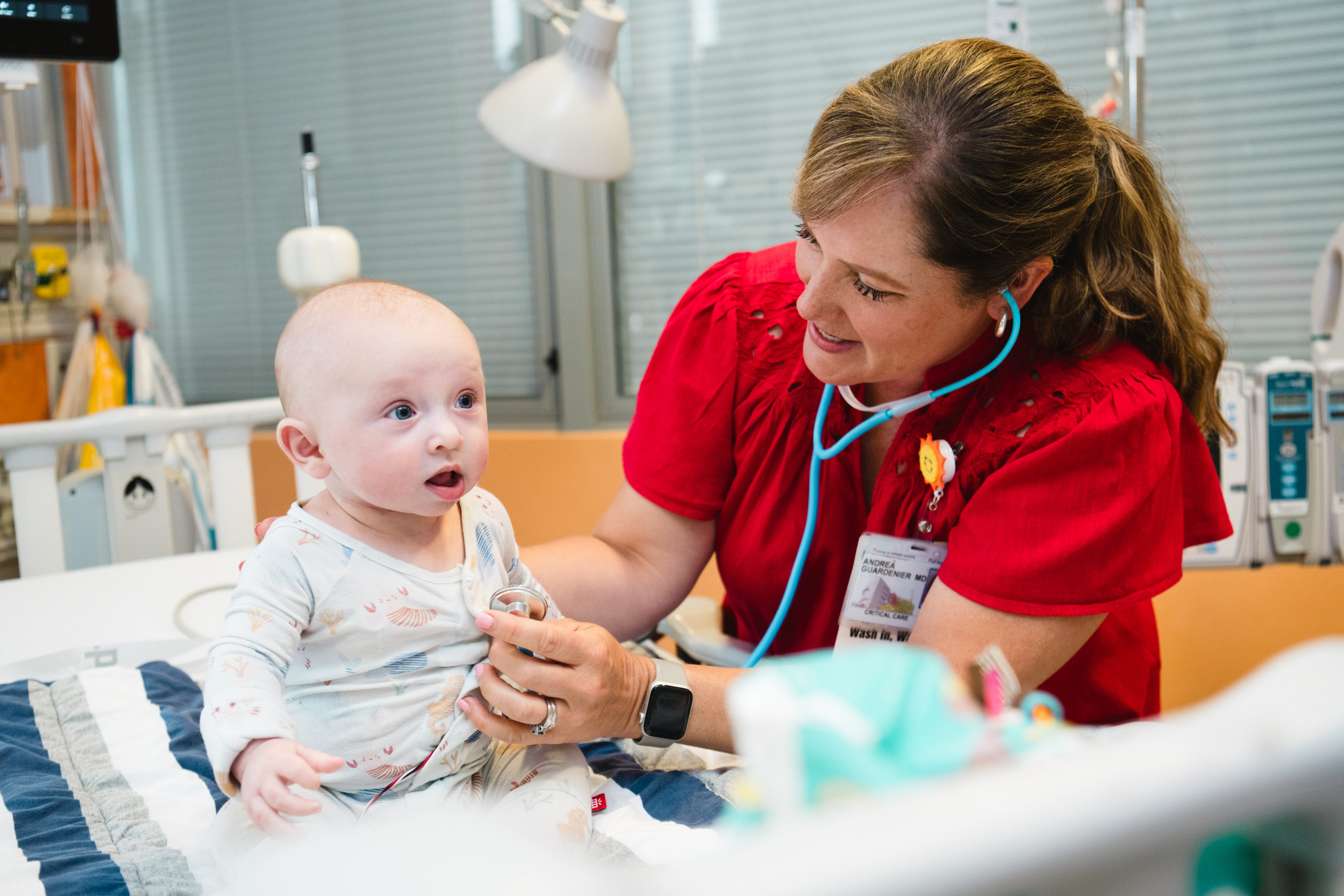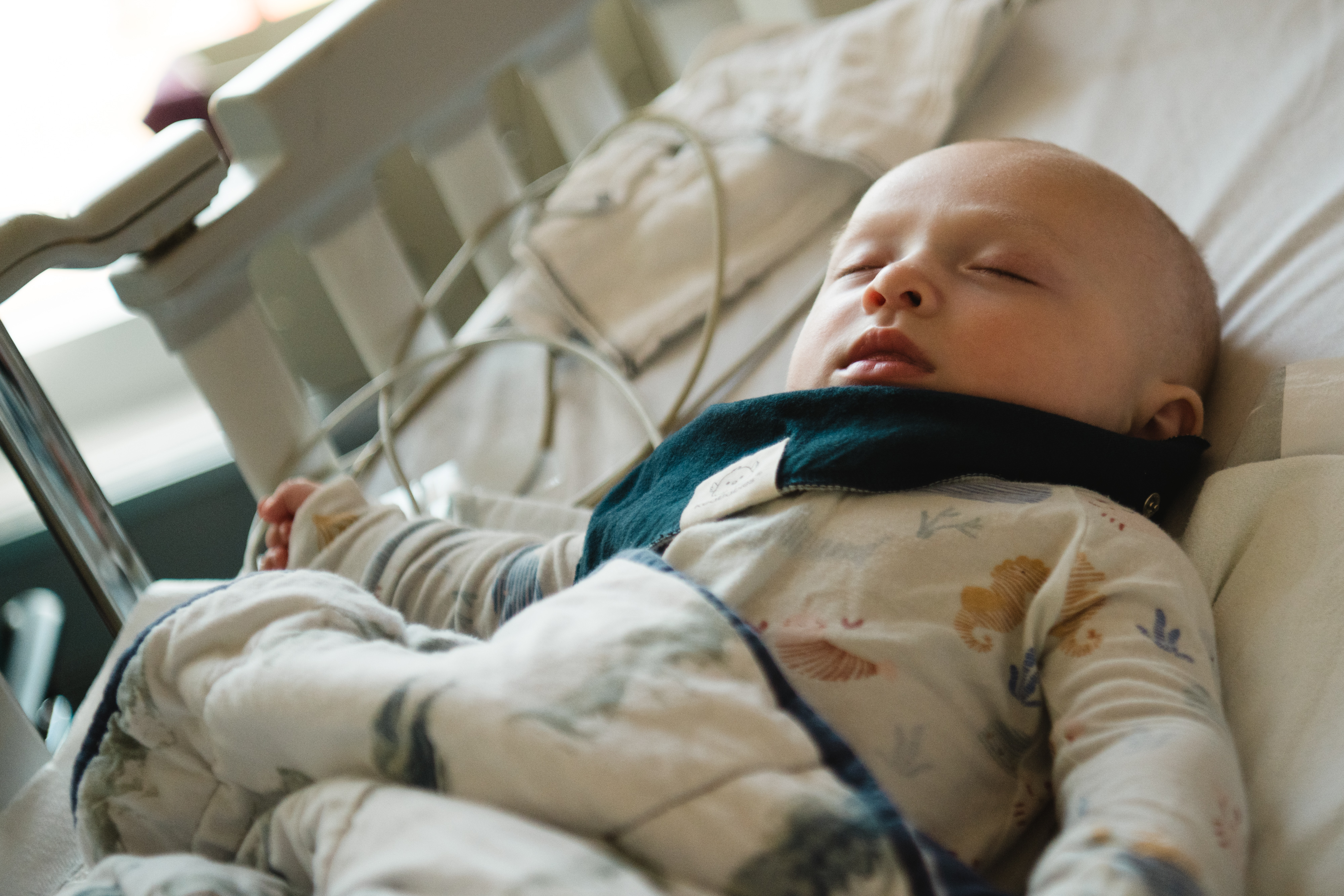The Longest Days
When Crew was on ECMO, we lived in shock. My husband and I took two-hour shifts to rest. My parents and sisters stayed with us. Nothing mattered except being by Crew’s side.
The machines were overwhelming, crowding his once-empty room, but the care team reminded us: this was giving Crew’s body a chance to rest. We clung to that.
We tried to stay positive, believing he needed our encouragement to heal. Of course, there were moments of doubt—the “rollercoaster of recovery” broke our hearts each time setbacks came—but we pushed forward.
The team focused on small wins. Every tiny step forward became cause for hope. Their honesty, paired with compassion, kept us grounded but not crushed.
We could name every nurse, doctor, and staff member who stood by Crew: Dr. Sanders, Dr. Gupta, Dr. Shai, Dr. Campbell, Dr. Taylor, Dr. Golden, Dr. Silverman, Dr. Guardenier, Dr. Lorenzoni, Dr. Parekh, Dr. Salonia, Dr. Banasiak, Paige, John, Tara, Rachel, Sara, Bobbi, Christine, Allie, Kevi, Chris, Julia, Ebony, Sarah, Rachel, Brittany, Kate. We’re thankful for each of them and remember them vividly.
